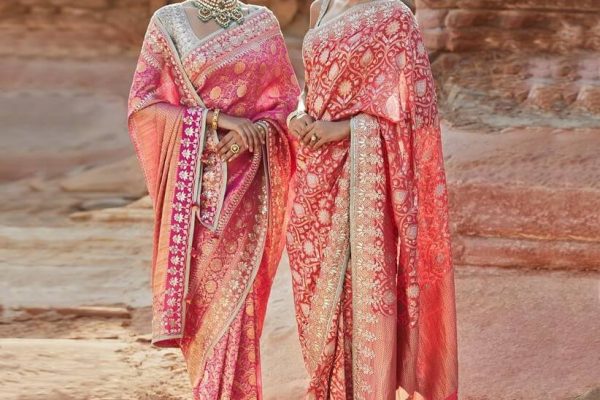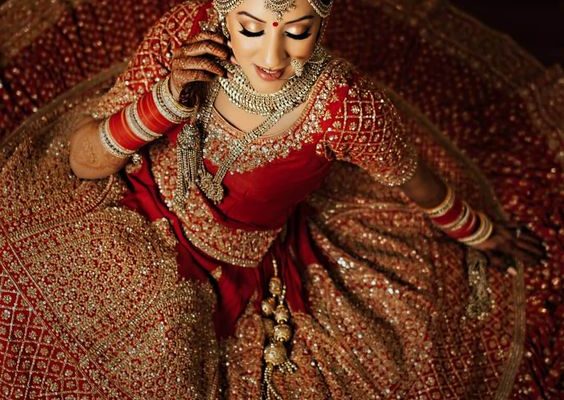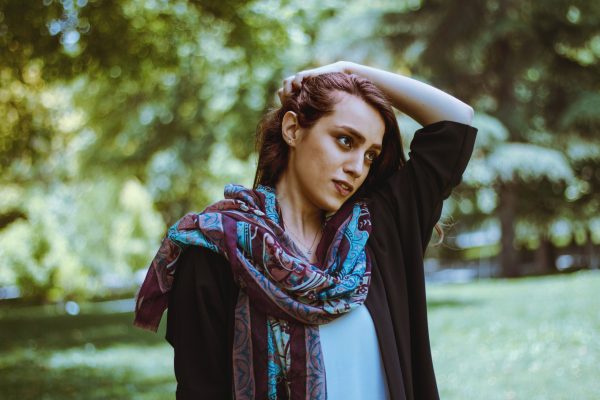Bangladesh is a country rich in cultural diversity, with a history spanning thousands of years.
Its cultural practices are deeply rooted in its traditions, religion, history, and way of life. In this comprehensive overview, we will explore the top 15 cultural practices of Bangladesh, shedding light on the unique aspects that make this country’s culture so fascinating and diverse.
1. Language and Literature:
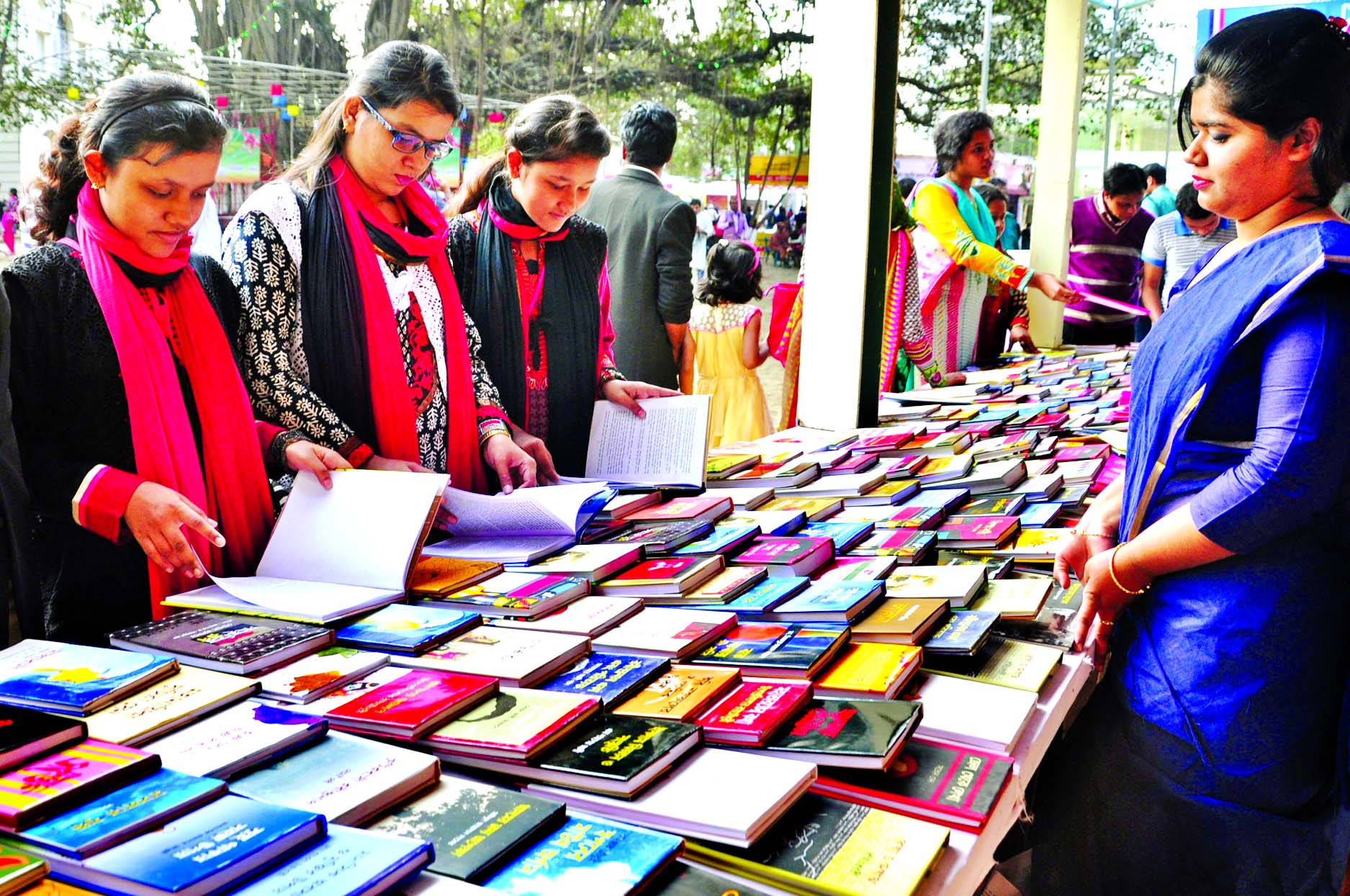
Bangla, also known as Bengali, is the official language of Bangladesh. The country has a rich literary tradition, with renowned poets and writers like Rabindranath Tagore, Kazi Nazrul Islam, and Jasimuddin. The Ekushey Book Fair celebrates this literary heritage.
2. Traditional Music and Dance:


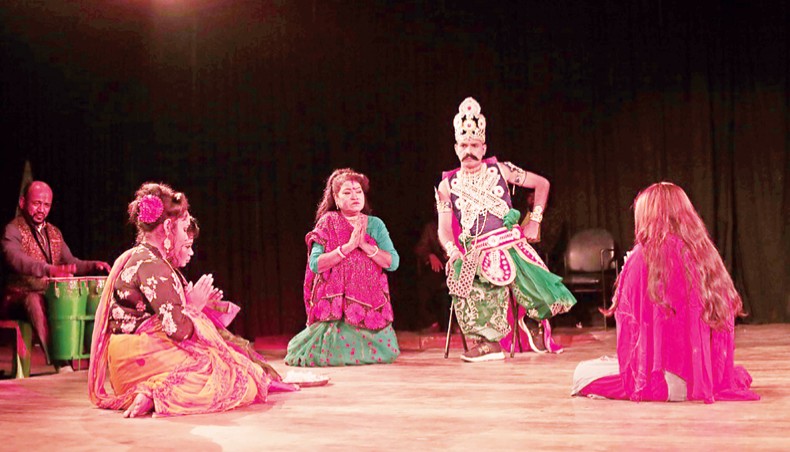
Music and dance are integral to Bangladeshi culture. Baul music, Bhatiali songs, and Nazrul Geeti are popular genres. Traditional dances like Jatra and Baul dance are performed during festivals and cultural events.
3. Religious Diversity:
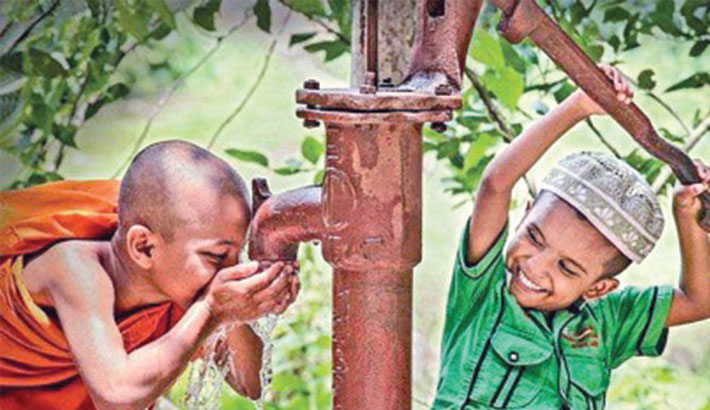
Bangladesh is a melting pot of religious beliefs, primarily Islam, Hinduism, Buddhism, and Christianity. The Baitul Mukarram National Mosque and the Kantaji Temple reflect this diversity.
4. Pohela Boishakh (Bengali New Year):
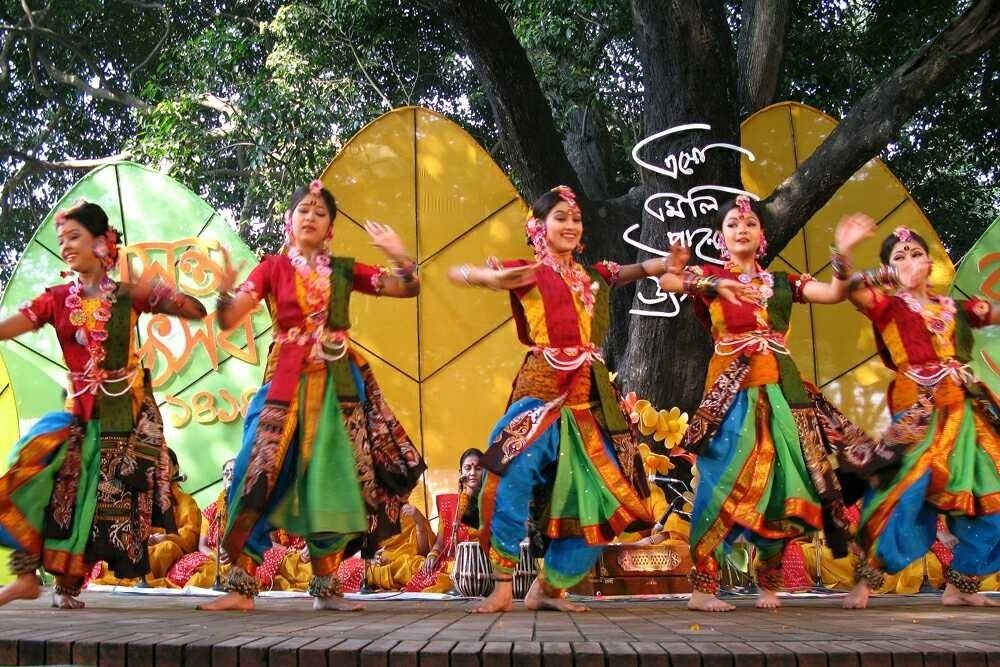
This vibrant festival marks the beginning of the Bengali calendar year. Colorful processions, traditional foods, and cultural events are organized across the country.
5. Shakrain Festival:
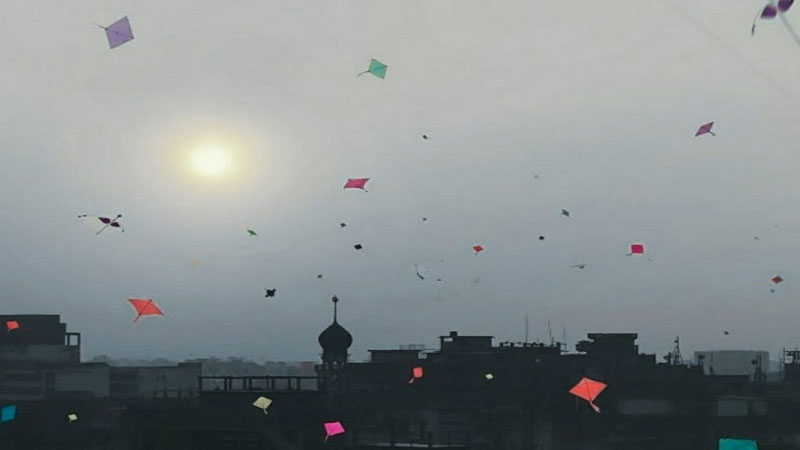 Celebrated in Dhaka, this kite-flying festival involves colorful kites and fireworks to mark the end of the Poush month in the Bengali calendar.
Celebrated in Dhaka, this kite-flying festival involves colorful kites and fireworks to mark the end of the Poush month in the Bengali calendar.
6. Durga Puja:

Hindus celebrate this festival with elaborate puja rituals, cultural programs, and processions showcasing artistic idols of goddess Durga.
7. Eid-ul-Fitr and Eid-ul-Adha:

Islamic festivals marking the end of Ramadan and the willingness of Ibrahim (Abraham) to sacrifice his son respectively. Festive prayers, feasting, and charity are significant aspects.

8. Traditional Crafts:


Bangladesh is renowned for its craftsmanship in areas like pottery, weaving, and nakshi kantha (embroidered quilts).
09. Boat Races:

Riverine Bangladesh hosts boat races during festivals like Baisakhi and Durga Puja. The tradition reflects the significance of rivers in the country’s culture.
10. Folk Festivals:
Festivals like Poush Mela and Baul Utshab celebrate rural traditions, music, and art forms, providing insight into the grassroots culture.
11. Traditional Clothing:
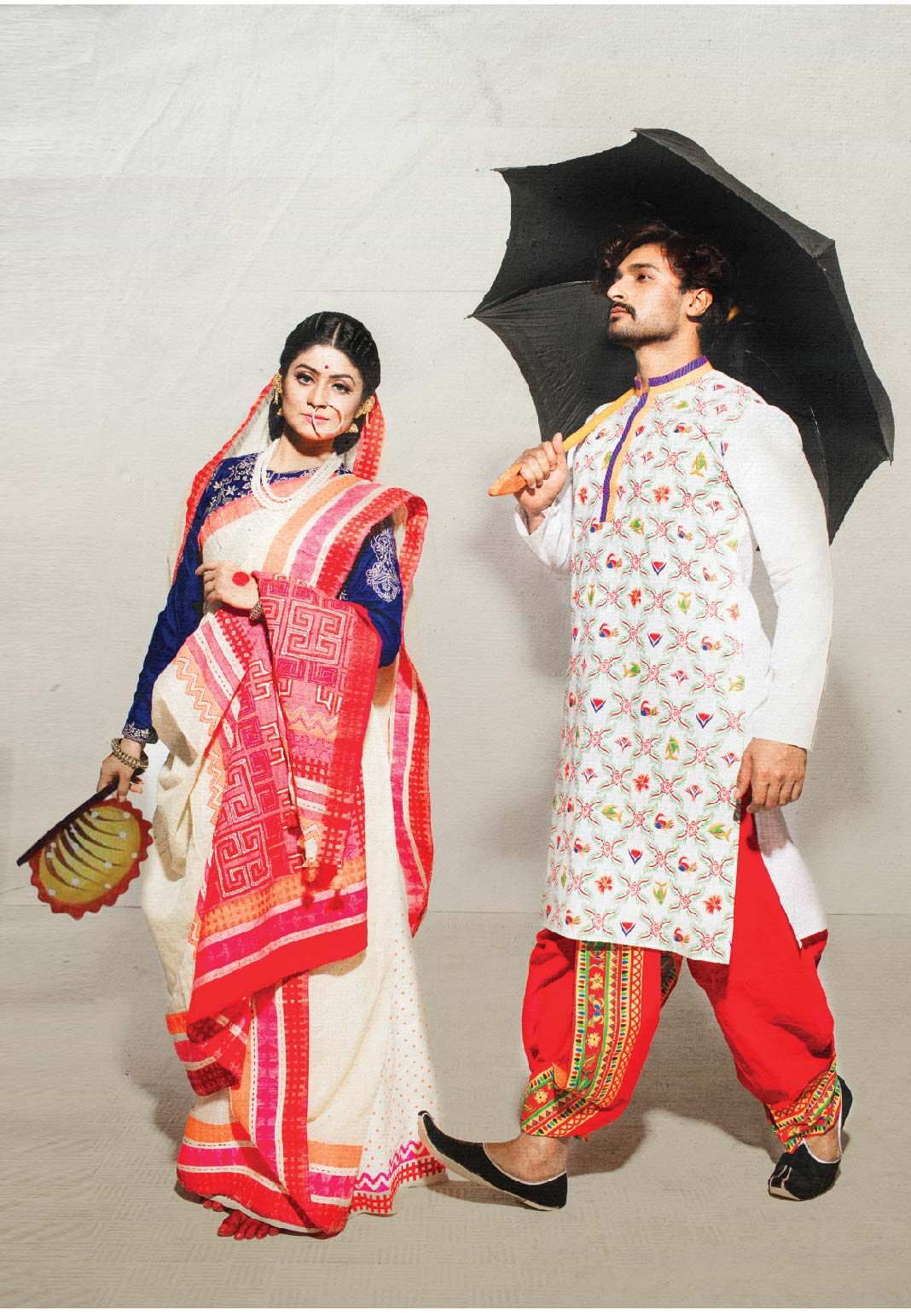
The saree for women and the panjabi with pajama for men are traditional attire. Both reflect the cultural identity of Bangladeshis.
12. Cuisine:
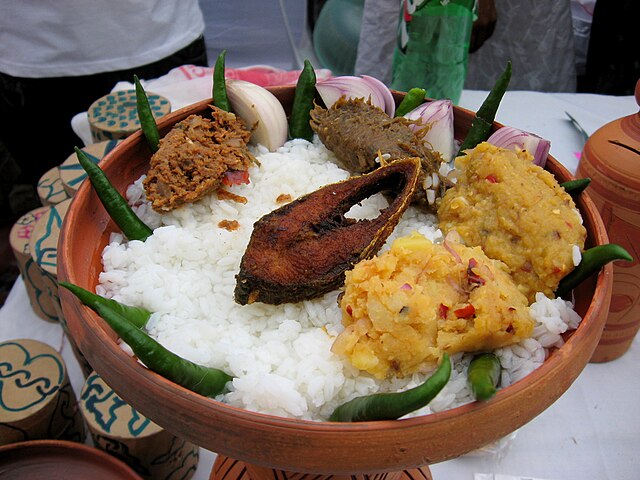 Rice and fish are staples in Bangladeshi cuisine. Dishes like biryani, panta bhat, and pithas are prepared during festivals and special occasions.
Rice and fish are staples in Bangladeshi cuisine. Dishes like biryani, panta bhat, and pithas are prepared during festivals and special occasions.
12. Wedding Traditions:

Traditional Bangladeshi weddings involve rituals like holud (turmeric ceremony) and gaye holud (bridal shower) accompanied by folk songs and dances.
13. Language and Music:
Lalon Shah, a Baul philosopher, composed songs that reflect social consciousness and spiritual exploration, contributing significantly to Bangladeshi music.
14. Architecture:


The Sixty Dome Mosque in Bagerhat and the Lalbagh Fort in Dhaka are prime examples of Bangladesh’s historical architecture, influenced by Mughal and Bengali styles.
15. Cultural Diversity:

Indigenous communities like the Chakma, Marma, and Garo contribute unique traditions, languages, and practices to the cultural mosaic.
In conclusion, The Liberation War of 1971, which led to the independence of Bangladesh, holds immense cultural significance. Martyrs’ memorials and Victory Day celebrations honor the sacrifice made for freedom. Bangladesh’s cultural practices are a rich tapestry woven from its history, religion, literature, arts, and everyday life. This diverse and vibrant culture is a testament to the resilience and creativity of its people, who continue to celebrate and preserve their heritage in the face of modernization and change.

